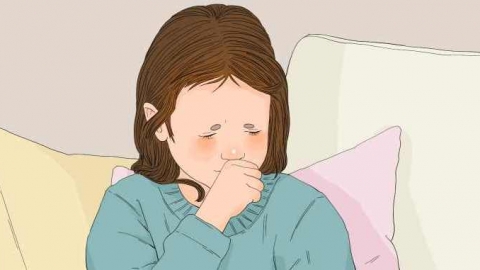What should I do if a child has a fever of 38°C?
Generally, a child's fever of 38°C may be caused by high environmental temperatures, vigorous activity, viral colds, bacterial pharyngitis, acute bronchitis, or other reasons. Patients can visit a regular hospital to choose general treatments or medication to improve their condition. A detailed analysis is as follows:
1. High Environmental Temperature
When the environmental temperature is too high, a child's weak body temperature regulation abilities may lead to impaired heat dissipation, possibly causing a fever of 38°C. Promptly move the child to a cool, well-ventilated area, reduce clothing, and use a cool towel to wipe areas such as the forehead and armpits to aid heat dissipation.
2. Vigorous Activity
After vigorous activity, a child's body produces more heat, temporarily raising body temperature to about 38°C. Have the child stop activity, rest quietly, drink some warm water, and body temperature usually gradually returns to normal once the body calms down.

3. Viral Cold
A cold caused by a viral infection can stimulate the immune system, releasing fever-inducing substances that lead to elevated body temperature up to 38°C, often accompanied by nasal congestion and runny nose. Ensure the child rests adequately, maintains sufficient sleep, and drinks plenty of warm water. If symptoms are significant, medications such as children's paracetamol and chlorpheniramine granules, ribavirin granules, or Pudi Lan Xiao Yan oral liquid may be used under a doctor's guidance.
4. Bacterial Pharyngitis
Bacterial infection in the throat causes inflammation, which stimulates the body to produce a fever response, resulting in a fever of 38°C accompanied by a sore throat. Treatment under a doctor's guidance with medications such as amoxicillin and clavulanate potassium dry suspension, cefaclor dry suspension, or children's Yankian granules may be necessary. Additionally, ensure the child follows a light diet.
Inflammation of the bronchi caused by bacterial or viral infection leads to the release of inflammatory factors that act on the body's temperature regulation center, resulting in a fever of 38°C, possibly accompanied by coughing and sputum production. Seek timely medical attention to determine the type of infection. Bacterial infections may be treated with medications such as cefixime granules, azithromycin dry suspension, or children's expectorant and cough-relief granules under a doctor's guidance; viral infections may be treated with appropriate antiviral medications as directed by a physician.
In daily life, it is important to adjust the child's clothing according to the weather, maintain good indoor air circulation, encourage frequent handwashing, avoid crowded places, and reduce the risk of infections.








